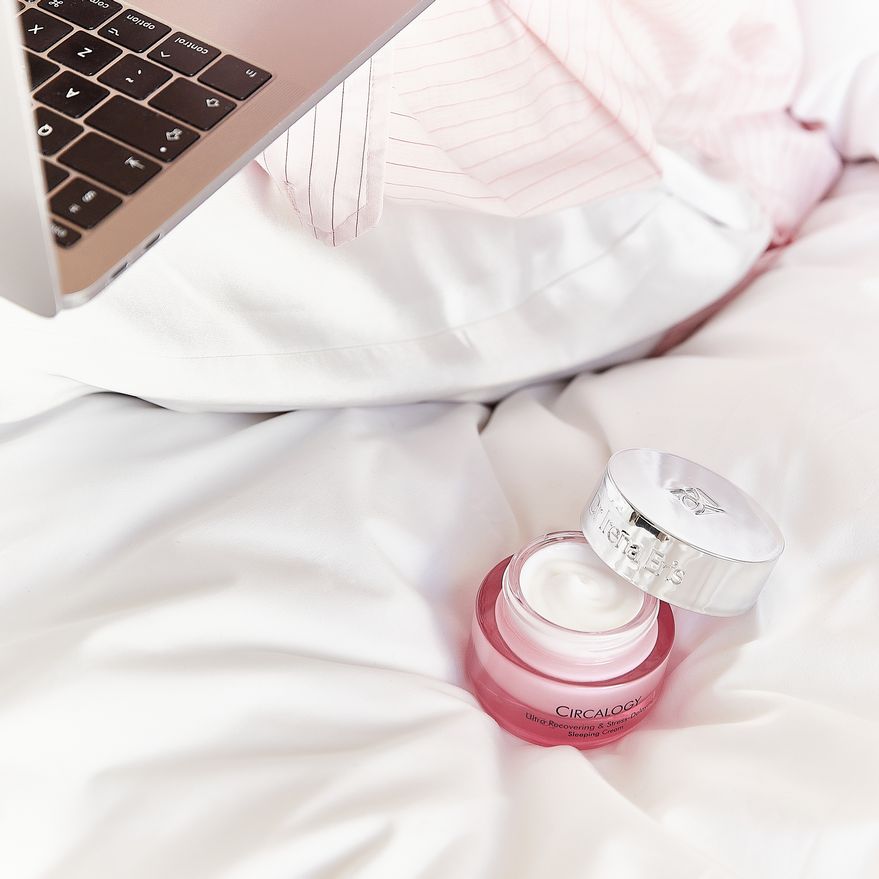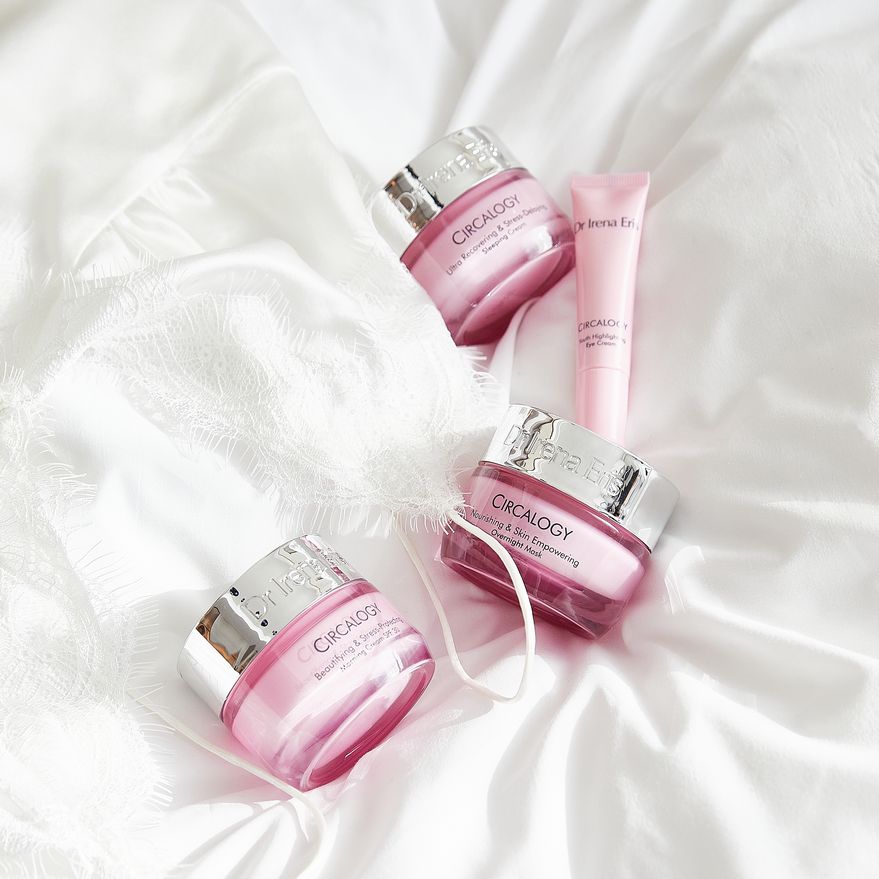Many of us suffer from stress resulting from overwork, anxiety, life problems, and even the famous FOMO (constant checking of the Internet in fear that we miss out on something important). This in turn results in problems with falling asleep - insomnia affects almost half of humanity!
So instead of the sweet embrace of Morpheus, many of us spend our late evening and night hours trying to relax on Netflix or surfing the depths of the Internet. Which only complicates the problem, because the more blue light, the less melatonin is secreted, which is, after all, the sleep hormone. Before the invention of electricity, everything was simpler. The sun would set, a person would go to sleep and get up like a newborn. In the 21st century, the issue of nightly rest - the length and quality of sleep - is sometimes a challenge.
 Skin knows better
Skin knows betterThe skin, like our whole body, is programmed by the impulses coming from the brain to follow the uniform rhythm of the "circadian clock", controlled by the light and dark phase - that is, day and night. Bending the rules of the natural, internal clock is associated with serious consequences for health and beauty. As a result, each sleepless or rough night means not only impaired functioning during the day (problems with concentration, irritability), but also worse appearance. Bags under eyes and sallow, dry skin are the most typical symptoms of sleep deprivation. If we get too little sleep too often, we risk the development of various inflammatory conditions, which in the case of skin can result in acne or hypersensitivity, as well as damage to collagen fibers, which makes it lose its firmness and elasticity.
Good quality sleep is really of paramount importance to our well-being and attractive appearance, which is why it is so important to ensure that our behaviors or habits do not block the secretion of melatonin. - At the cellular level, melatonin has antioxidant properties, but most importantly, it globally affects the body by regulating sleep and wakefulness. Melatonin production by the pineal gland begins in the late evening, around 8 to 9 p.m., and ends in the morning. When light enters the eye, melatonin secretion decreases and its concentration in the blood decreases. Blue light has the strongest effect. Artificial light sources, such as TV screens, computers and cell phones are therefore among the strong light stimuli that inhibit melatonin synthesis. Excessive exposure to blue light is one of the reasons for sleep difficulties and insomnia. It has been proven that sleep disorders affect skin ageing in terms of weakened regeneration and integrity of cells, as well as weaker wound healing - explains dr Renata Dębowska, head of the Scientific and Research Centre at Dr Irena Eris.
So, how to preserve the beauty of our skin when slow-life and long, restorative sleep are not guaranteed to everyone and not always? Of course, it would be best to modify the lifestyle, but it is not so easy. In order to take care of our skin condition so that it regenerates according to the daily cycle, we recommend the CIRCALOGY line of cosmetics by Dr Irena Eris.
 The power of innovation
The power of innovationThe innovative formula used in the line includes the Bio-Chronocell complex, which harmonizes and “reprograms” the physiological rhythm of the skin. This complex takes advantage of the extraordinary properties of the stem cell essence of Lespedeza capitata, an Asian plant that is resistant to blue light. The essence contains flavonoids, which have a direct effect on the skin's diurnal rhythm, as well as very powerful antioxidant properties.
Bio-Chronocell stimulates the “night” genes and quiets the “morning” genes, harmonizing the diurnal rhythm of the skin of the modern woman exposed to long periods of blue light. Additionally, the formula is enriched with plant extracts and oils that intensively moisturize and nourish the skin, support its detoxification, improve color, reduce imperfections, stimulate microcirculation.
The result? Definitely fresher, hydrated, regenerated skin.